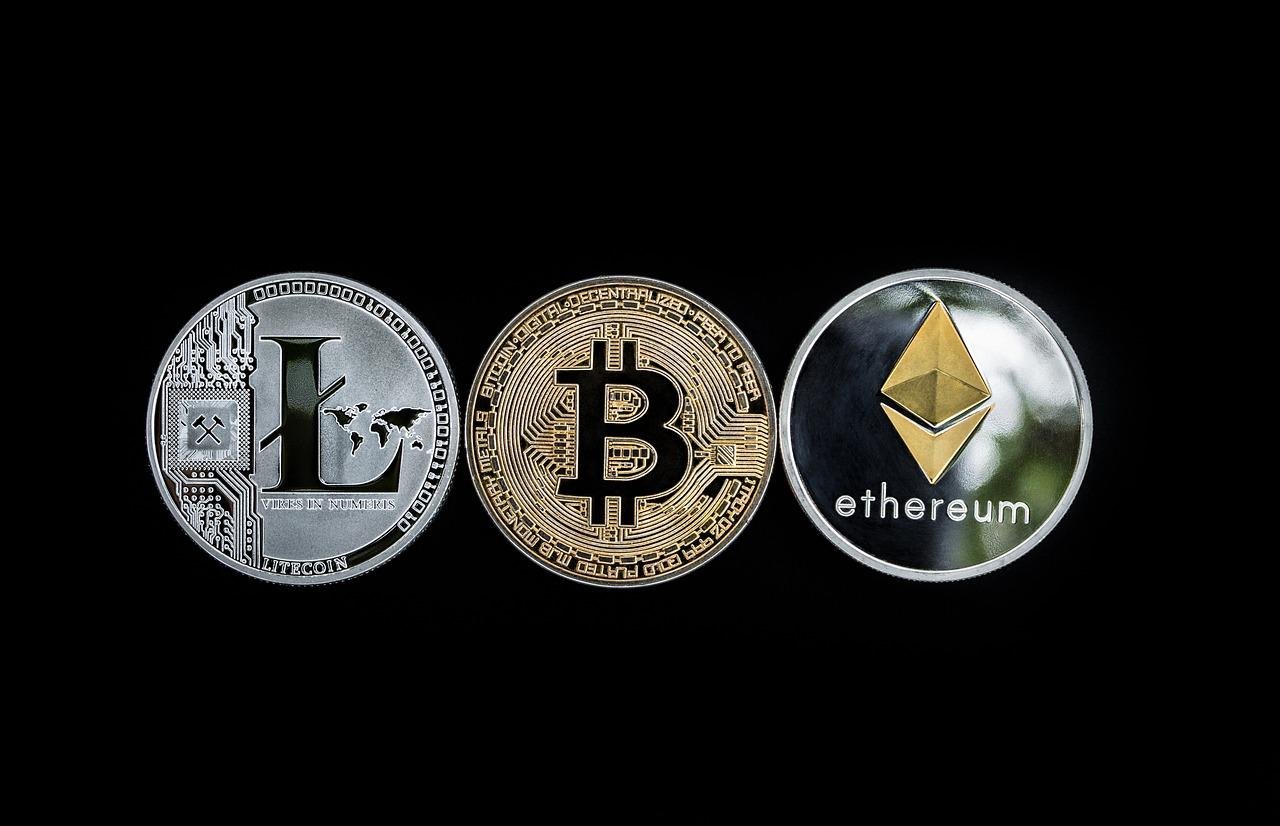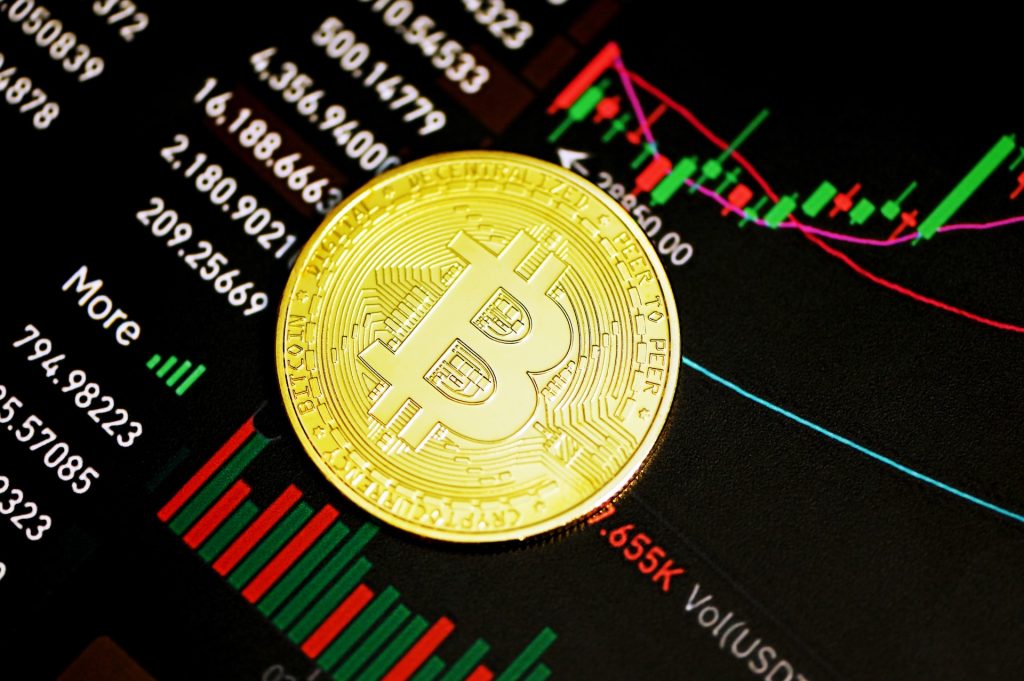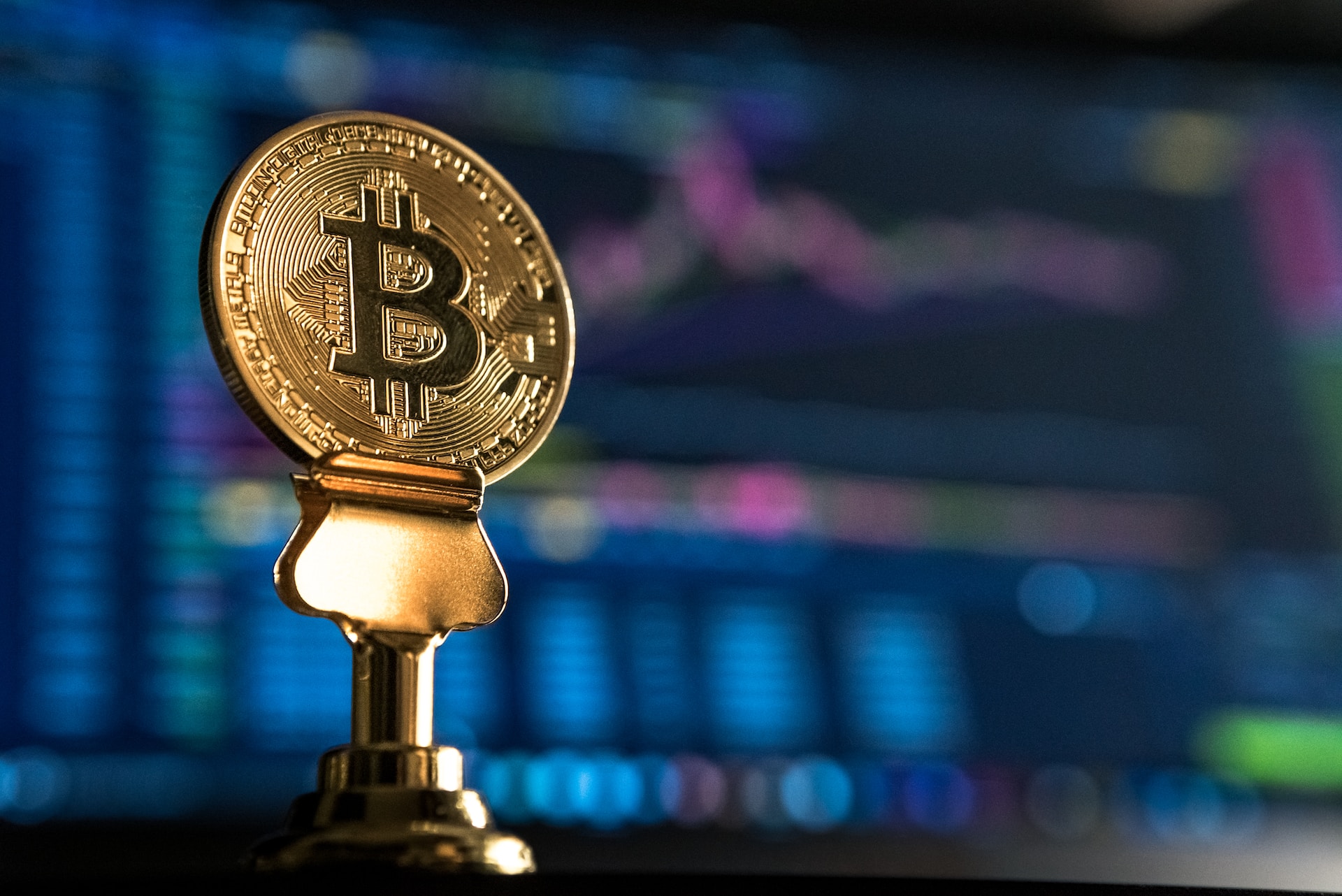Cryptocurrency
What Are The Top 5 Crypto Mining Stocks You Should Check Out in 2022?

Financial managers and investors across the world are turning their heads toward the global cryptocurrency market as a new source of investments. While the cryptocurrency industry is still young, they have gathered enormous steam and are being taken seriously even by conventional financial streams.
As any cryptocurrency course would tell you, there can be many ways to profit off these digital currencies in 2022. One popular approach is cryptocurrency mining. You can mine cryptocurrency stocks and hold them till you can sell them at an enormous value and pocket the profits.
However, there are scores of cryptocurrency mining stocks today, and it can be difficult to choose the right one for yourself. We can make your decision easier through this blog by summarising some of the best crypto mining stocks that you should check out this year.
Which crypto mining stocks can provide the best value and investment opportunities in 2022?
If you have a limited budget, you can opt for the following cryptocurrency mining stocks as they provide the best value for their price. These mining stocks have had the lowest price-to-sales ratio for the last 12 months.
- Canaan Inc. (CAN)
- HIVE Blockchain Technologies Ltd. (HIVE)
- Bitfarms Ltd. (BITF)
Which crypto mining stocks are the most promising and fastest-growing in 2022?
More than often, you should also check out the top performing crypto mining stocks as well as the ones that show the most promise. This can help you draw up a long-term cryptocurrency trading strategy.
Here are some of the most promising cryptocurrency stocks that can be expected to boom in the upcoming years.
- Marathon Digital Holdings Inc. (MARA)
- Riot Blockchain Inc. (RIOT)
- Russell 1000
- Hut 8 Mining Corp. (HUT)
- Amplify Transformational Data Sharing ETF (BLOK)
What Are The Benefits Of Cryptocurrency Trading?
Learning about the top cryptocurrency mining stocks can help you figure out which stocks would perform for you in the long run. This can help you become an experienced cryptocurrency trader and earn significant amounts of money.
You might argue that other conventional forms of trading can beat crypto trading since it’s very dynamic and seemingly unreliable. However, crypto trading offers distinctive advantages over other trading forms such as:
- Independence from conventional trading brokerage firms and platforms
- Opportunity for portfolio diversification
- Ease of transactions
- Unimaginable security surrounding trading transactions
- Outsized returns compared to other trading forms
- Privacy maintained during your trade transactions
- Considerable protection against market fluctuations and inflation
- Short settlement times and lower brokerage fees as compared to other trading forms
- The exponential growth of the industry
- Ability to achieve financial independence within a short time
How Can You Learn More About Crypto Trading?
Cryptocurrency trading and mining can be incredibly technical and require you to be quite knowledgeable about the fintech space. Fortunately, a good cryptocurrency trading program can help you learn everything about crypto trading including the best crypto stocks and trading strategies.
Start looking for appropriate crypto trading courses around you today!

Cryptocurrency
Decoding P2P Exchange: Revolutionizing the Way We Trade Digital Assets

The digital asset landscape is evolving rapidly, with Peer-to-Peer (P2P) exchanges at the forefront of this transformation. Unlike traditional platforms, P2P exchanges offer a decentralized framework for trading digital currencies, enabling direct transactions between participants without the need for intermediaries. This paradigm shift not only enhances security and privacy but also significantly reduces transaction costs. As we delve into the intricacies of P2P exchanges, it becomes clear that they are more than just a novel trading mechanism; they are revolutionizing the way we trade digital assets, promising a more efficient, secure, and inclusive future for the cryptocurrency market.
Understanding P2P Exchanges
At its core, a P2P exchange is a platform that facilitates the direct exchange of digital assets between users without the involvement of a central authority. This is achieved through the use of innovative technologies such as blockchain and smart contracts, which ensure transparency, security, and trust between parties. Unlike centralized exchanges, where the platform controls the trade and custody of assets, P2P exchanges empower users to retain control over their funds throughout the transaction process.
The primary mechanism that enables the secure and trustworthy operation of P2P exchanges is the smart contract. Acting as a self-executing contract with the terms of the agreement directly written into code, smart contracts automatically enforce and execute the terms of a trade once predefined conditions are met. This eliminates the need for intermediaries, reducing the risk of fraud and lowering transaction fees.
Furthermore, many P2P exchanges incorporate escrow services to enhance transaction security. In this setup, the digital asset to be traded is held in escrow by the platform until the seller confirms receipt of the buyer’s payment. This additional layer of security ensures that neither party can default on their obligations, thereby protecting both the buyer and the seller.
The transition to P2P exchanges represents a significant leap towards a more decentralized and democratized financial ecosystem. By eliminating the need for centralized control, P2P platforms offer a more resilient, efficient, and equitable trading environment for digital assets.
Advantages of P2P Exchanges
Decentralization
One of the most compelling advantages of P2P exchanges is the decentralization of trading activities. Unlike centralized platforms, where a single entity has control over all transactions, P2P exchanges distribute control across its users. This significantly mitigates the risk of single points of failure, such as server downtime or organizational mismanagement, which can lead to substantial losses for traders. Moreover, decentralization ensures a more democratic trading environment, where market dynamics are purely governed by supply and demand, free from manipulation by central authorities.
Security
Security concerns are paramount in the digital asset realm. P2P exchanges address these concerns by enabling users to maintain control over their private keys and, by extension, their assets. This direct control reduces the risk of large-scale hacks that centralized exchanges are susceptible to, where attackers target the aggregated funds of thousands of users. Additionally, the use of smart contracts and escrow services in P2P exchange adds an extra layer of security, ensuring that transactions are executed faithfully and funds are released only when both parties fulfill their trade obligations.
Privacy
In an era where privacy is increasingly coveted, P2P exchanges offer a more private trading experience compared to their centralized counterparts. Since trades are executed directly between users, personal information is not shared with a central entity. Furthermore, many P2P platforms offer the option to trade anonymously, appealing to users who prioritize privacy.
Lower Fees
Without intermediaries, P2P exchanges often incur lower transaction fees. This cost-effectiveness is particularly beneficial for users making frequent or large transactions. By removing the intermediary, P2P platforms can offer more competitive rates, making digital asset trading more accessible to a broader audience.
Challenges and Solutions in P2P Trading
Despite their advantages, P2P exchanges face several challenges, including liquidity issues, price volatility, and the risk of scams. However, innovative solutions are continuously being developed to address these hurdles.
Liquidity
One of the primary challenges of P2P trading is achieving sufficient liquidity. A robust network of buyers and sellers is essential for the smooth execution of trades. To enhance liquidity, many P2P exchanges implement features such as reputation systems, which incentivize active participation and support for multiple payment methods, making it easier for users to trade.
Price Volatility
Price volatility can be a concern in P2P trading due to the decentralized nature of the market. To mitigate this, P2P platforms often offer price-locking mechanisms, ensuring that the agreed-upon price is honored throughout the transaction process, regardless of market fluctuations.
Scam Prevention
The risk of scams is a critical concern in P2P exchanges. Platforms address this issue by incorporating robust verification and dispute resolution processes. User verification, including identity checks and two-factor authentication, helps prevent fraudulent activity. Additionally, escrow services and a dedicated dispute resolution team ensure that any issues between buyers and sellers are pretty resolved.
Cryptocurrency
How To Become a Master in Bitcoin Trading

Welcome to the world of Bitcoin trading! Here we know about the basics of Bitcoin trading and equip you with the knowledge and skills needed to navigate the exciting and ever-changing cryptocurrency market. Whether you’re a beginner or have some experience in trading, here are valuable insights to enhance your Bitcoin trading journey.
What is Bitcoin?
Bitcoin is a decentralized digital currency that was introduced in 2009 by an unknown person or group of people using the pseudonym Satoshi Nakamoto. It operates on a technology called blockchain, which is a public ledger that records all Bitcoin transactions.
Why Trade Bitcoin?
Bitcoin trading offers numerous advantages and opportunities for traders. Here are some key reasons why many individuals are drawn to Bitcoin trading.
1. Volatility
Bitcoin is known for its high volatility, presenting traders with significant opportunities to profit from price fluctuations.
2. Decentralization
As a decentralized currency, Bitcoin is not controlled by any government or financial institution, providing users with greater autonomy and independence.
3. 24/7 Market
Unlike traditional financial markets, Bitcoin trading operates 24/7, allowing traders to participate at their convenience.
4. Global Accessibility
Bitcoin can be traded from anywhere in the world, making it accessible to individuals without geographical restrictions.
How to Getting Started with Bitcoin Trading

1. Set up a Bitcoin Wallet
Before you can start trading Bitcoin, you’ll need a Bitcoin wallet to securely store your digital assets. There are various types of wallets available, including:
- Hardware Wallets: Physical devices that store your Bitcoin offline for enhanced security.
- Software Wallets: Applications that can be installed on your computer or smartphone.
- Online Wallets: Web-based wallets accessible through a browser.
Choose a wallet that suits your needs and follow the instructions to set it up.
2. Choose a Right Bitcoin Exchange Platform
To trade Bitcoin, you’ll need to select a reputable cryptocurrency exchange. Some popular exchanges include Binance, Coinbase, Kraken, etc. Compare the features and fees of different exchanges to find the one that aligns with your trading requirements.
3. Learn the Basics of Technical Analysis
Technical analysis plays a crucial role in Bitcoin trading. It involves analyzing historical price data and using various indicators to predict future price movements. Familiarize yourself with common technical analysis tools, such as:
- Candlestick charts: These charts display price movements over a specific period, helping identify patterns and trends.
- Support and resistance levels: These levels indicate price levels at which Bitcoin may encounter buying or selling pressure.
- Moving averages: Moving averages smooth out price data and provide insights into the overall trend.
4. Develop a Trading Strategy
Having a well-defined trading strategy is vital for success in Bitcoin trading. Consider the following factors when developing your strategy:
- Risk Management: Determine the amount of capital you are willing to risk on each trade and set stop-loss orders to minimize potential losses.
- Entry and Exit Points: Identify optimal entry and exit points based on your technical analysis and risk appetite.
- Timeframe: Decide on the timeframe for your trades, and whether you prefer short-term day trading or long-term investing.
- Emotional Discipline: Emotions can negatively impact trading decisions. Maintain discipline and stick to your strategy.
FAQs
1. How do I choose the right time to buy Bitcoin?
Timing the market perfectly is challenging, even for experienced traders. Instead of trying to predict short-term price movements, focus on the long-term potential of Bitcoin. Dollar-cost averaging, which involves regularly buying Bitcoin regardless of its price, can be a strategy to consider.
2. Should I trade Bitcoin on leverage?
Trading Bitcoin on leverage involves borrowing funds to amplify your trading position. While leverage can increase potential profits, it also magnifies losses. It is recommended for experienced traders who understand the risks involved. Beginners should exercise caution or avoid leverage altogether.
3. What are the tax implications of Bitcoin trading?
Tax regulations regarding Bitcoin trading vary across jurisdictions. Consult a tax professional or refer to the guidelines provided by your local tax authority to ensure compliance with tax obligations related to cryptocurrency trading.
4. Can I trade Bitcoin with other cryptocurrencies?
Yes, many exchanges offer trading pairs that allow you to exchange Bitcoin for other cryptocurrencies. These pairs are denoted in the format “BTC/ALT,” where ALT represents the name of the alternative cryptocurrency.
5. How can I secure my Bitcoin?
Securing your Bitcoin is crucial to protect your digital assets from potential theft or hacking. Consider implementing security measures such as enabling two-factor authentication, using hardware wallets, and keeping your wallet software up to date.
6. What are the risks associated with Bitcoin trading?
Bitcoin trading involves inherent risks, including price volatility, regulatory changes, and security vulnerabilities. It’s important to conduct thorough research, stay informed about market developments, and only invest what you can afford to lose. You may need to know about the Bitcoin trading laws to before starting invest in Bitcoin.
Conclusion
You’ve now mastered the basics of Bitcoin trading. Remember, trading cryptocurrency can be highly rewarding but also involves risks. Continuously educate yourself, practice risk management, and adapt your strategies as the market evolves. With dedication and a solid understanding of the fundamentals, you can navigate the exciting world of Bitcoin trading.
Cryptocurrency
Bitcoin Trading Laws to Trade Confidently and Legally

Bitcoin and other cryptocurrencies have gained immense popularity as alternative investment options. As the cryptocurrency market continues to expand, it is crucial for traders to understand the Bitcoin trading laws in order to trade confidently and legally. This article provides an overview of the legal aspects surrounding Bitcoin trading, ensuring that traders have the necessary knowledge to navigate this exciting and evolving market.
What are Bitcoin Trading Laws?
Bitcoin Trading Laws are regulations and guidelines set by various governmental bodies and financial institutions to oversee the trading, taxation, and legality of Bitcoin and other cryptocurrencies. Adhering to these laws not only protects traders from potential legal repercussions but also ensures the stability and integrity of the financial system.
How are Bitcoin Trading Laws Regulated?
Bitcoin trading laws vary from country to country. While some nations have embraced cryptocurrencies and formulated specific regulations, others have imposed restrictions or even banned their use altogether. It is important for traders to familiarize themselves with the legal framework of their respective jurisdictions to engage in Bitcoin trading with confidence.
Key Aspects of Bitcoin Trading Laws

Classification of Bitcoin
Bitcoin is often categorized as a digital asset, commodity, or currency, depending on the jurisdiction. The classification has a significant impact on the legal implications surrounding Bitcoin trading, including taxation and regulatory requirements. Traders must determine how their local authorities classify Bitcoin to ensure compliance with relevant laws.
Regulatory Bodies
Different countries have different regulatory bodies overseeing Bitcoin trading activities. For instance, in the United States, the Securities and Exchange Commission (SEC) plays a crucial role in regulating cryptocurrency exchanges and initial coin offerings (ICOs). Other countries have similar regulatory bodies that enforce specific rules and guidelines for Bitcoin trading. Familiarizing oneself with these regulatory bodies and their mandates is essential for traders.
KYC and AML Regulations
Know Your Customer (KYC) and Anti-Money Laundering (AML) regulations are often applied to Bitcoin exchanges and trading platforms. These regulations require traders to provide identification documents and undergo verification processes to prevent illicit activities such as money laundering and terrorist financing. KYC and AML procedures not only ensure compliance with the law but also promote transparency and security within the Bitcoin ecosystem.
Taxation Laws
Taxation is a critical aspect of Bitcoin trading that varies across jurisdictions. Traders must understand the tax obligations associated with their Bitcoin investments, including capital gains taxes on profits, reporting requirements, and any exemptions or deductions available. Consulting with a tax professional who specializes in cryptocurrency taxation can provide valuable insights and ensure compliance with applicable laws.
Consumer Protection
As the popularity of Bitcoin trading grows, so does the need for consumer protection measures. Some countries have implemented laws to safeguard traders’ interests, such as requiring exchanges to maintain adequate cybersecurity measures, ensuring the fair treatment of customers, and providing avenues for dispute resolution. It is crucial for traders to understand the level of consumer protection offered in their jurisdiction and choose reputable and regulated trading platforms.
Frequently Asked Questions
1. Are Bitcoin trading laws the same worldwide?
Bitcoin trading laws vary across countries and even within different regions of a single country. It is important for traders to research and understand the specific laws governing Bitcoin trading in their jurisdiction.
2. Do I need to pay taxes on Bitcoin trading profits?
Yes, in most countries, profits from Bitcoin trading are subject to taxation. Traders should consult with tax professionals to ensure compliance with tax laws and understand reporting obligations.
3. What happens if I trade Bitcoin illegally?
Trading Bitcoin illegally can lead to severe legal consequences, including fines and imprisonment. It is essential to understand and abide by the applicable Bitcoin trading laws to avoid any legal troubles.
4. Can I trade Bitcoin anonymously?
While Bitcoin offers a certain degree of pseudonymity, most regulated exchanges and trading platforms require users to undergo identity verification processes as part of KYC and AML regulations.
5. Are there any age restrictions for Bitcoin trading?
Some jurisdictions have age restrictions for engaging in Bitcoin trading. Traders should check the legal age requirements in their country before participating in cryptocurrency markets.
6. What should I do if I suspect fraud or illegal activities in Bitcoin trading?
If you suspect fraudulent activities or encounter any suspicious behavior in Bitcoin trading, it is advisable to report such incidents to the appropriate regulatory authorities or law enforcement agencies.
Conclusion
As Bitcoin and cryptocurrencies continue to revolutionize the financial landscape, it is crucial for traders to stay informed about the Bitcoin trading laws in their respective jurisdictions. Understanding the legal framework not only helps traders operate confidently and legally but also contributes to the overall stability and growth of the cryptocurrency market.
-

 Business3 years ago
Business3 years agoThe Most Efficient Ways To Use The Best 6 Business Keynote Presentations
-

 Apps and Software1 year ago
Apps and Software1 year agoStarbucks Partner Hours App Login Guide
-

 Entertainment1 year ago
Entertainment1 year ago15 Best IPTV Service Providers in the UK 2025
-

 Tech4 years ago
Tech4 years agoIs Forecasting A Part Of Data Science?
-

 Economy4 years ago
Economy4 years agoWhat does it mean to Dream About Pennies?
-

 Entertainment1 year ago
Entertainment1 year ago10 Best Free Video Player Apps For Apple TV
-

 Entertainment7 months ago
Entertainment7 months agoExploring Moviesda 2025: Tamil Cinema’s Digital Hub for Streaming, Downloads & Digital Trends
-

 Entertainment3 years ago
Entertainment3 years agoHow To Enhance Your Viewing with Video Subtitle Support






























